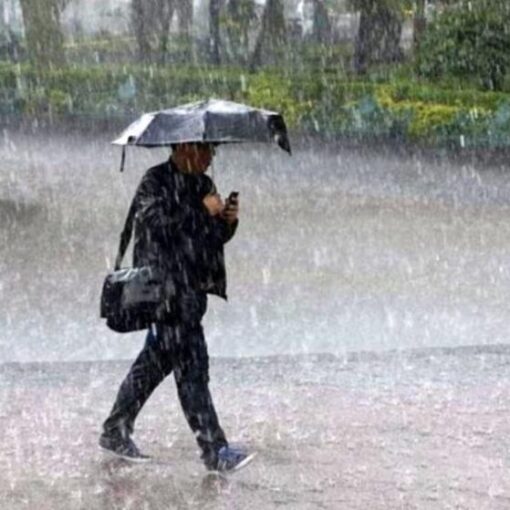QCOSTARICA — Despite the priority given to a bill to try adolescents as adults in homicide cases, the figure handled by the Ministerio Publico (Prosecutor’s Office) shows a relatively low participation of them between the years 2020 and 2023.
“We have problems that some of the most notorious and dangerous sicarios (hitmen) are people who have not yet turned 18, and then the question for society should be how to deal with the immediate danger (…) the system is not giving us the tools to neutralize those dangers.”
This is what President Rodrigo Chaves said on October 3, 2023, in one of his calls to approve the legal reform for tougher penalties for minors in cases of homicide, as an urgent measure during the year 2023 that marked a new historical record in murders in Costa Rica.
– Advertisement –
The data, however, indicate that this factor pointed out by Chaves insistently has a low effect on the total number of homicides and even less if only those that occurred as part of the operations of organized crime linked to drug trafficking are considered.
Official statistics indicate that minors are charged in 1.1% of the total homicides recorded by the authorities in the years 2020, 2021, 2022 and 2023 where circumstances of organized crime were involved, with the particularity that in these last three years this percentage was lower than in 2020. That is, the numbers do not indicate an upward trend.
The figures are kept by the Deputy Prosecutor’s Office for Juvenile Criminal Matters. Of the 2,718 homicides recorded between 2020 and 2023, 161 involve minors, that is, 5.9%. However, only in one in five of these cases are there indications that the crime was committed as part of a criminal organization, which adds up to 31 records (1.1% of the total).
If we look specifically at the year 2023, the bloodiest in national history, the figures show that there were 54 homicides in which the defendants are minors. This represents 5.9% of the 906 homicides of the year, but only 16 (one third) of those minors suspected of killing would have done so in the context of an organized crime group.
In 2020, there were 570 homicides, in which 51 adolescents were accused, almost 9%. And of these, 1 in 6 could have been an act within a criminal network.
“The situation is not as dire or growing as it is sometimes shown and the statistics show it. The more violent deaths there are, the more cases of minors in juvenile prison, but (2023) is not the worst year. What happened was that it was publicized more,” commented María Gabriela Alfaro, head of the Juvenile Criminal Deputy Prosecutor’s Office.
– Advertisement –
Alfaro also commented that in the execution of homicides, minors tend to be less careful due to inexperience and this leads them to leave more traces that make the capture possible and, therefore, news about these events. Some, in addition, are more daring.
As victims, minors appear with data that draw the attention of the authorities, since in the last five years 92 deaths were recorded, which represent 2.8%, according to figures handled by the Ministry of Public Education, where Vice Minister Leonardo Sánchez has expressed concern about the relationship between social vulnerability, lack of opportunities and crime.
President Rodrigo Chaves leans towards tough positions that involve increasing the sentence for minors, despite the objections of opposition deputies and criteria such as that of prosecutor Alfaro.
“Sometimes there is a lack of knowledge of juvenile criminal matters and that affects. If we do not give value to working with children and adolescents and the specific purposes of the law, we are not contributing to healing the population that has already violated rights and we are not protecting those who have not done so,” commented Alfaro.
– Advertisement –
Mario Zamora, Minister of Security, gave a vision closer to hers in February: “We must not only think about measures that deprive us of our freedom, but also about deep interventions that will ensure that these people do not continue down that path because, if not, we will finally see them as full-fledged criminals,” he said to Diario Extra.
The records of the Judicial Investigation Agency (OIJ) to August 5 indicate that in 2024, 24 minors have died from homicide, which represents 4.6% of the total deaths for that reason so far this year, with a total of 521. This number is 13 units less than what was recorded for August 5, 2023, the year with the most homicides, which ended with a rate of 17.2 per 100,000 inhabitants.
This July ended as the bloodiest month in the country’s history with a total of 80 victims, 17.5% more than July of the previous year and more than double what was recorded in 2021.
In turn, July 2024 became the second most violent month of this year, only surpassed by February, when 88 people died from murder, according to data from the OIJ.
In this violent scenario, the participation of minors is not reflected as a growing factor in judicial statistics as perpetrators, although experts do warn that the vulnerable environments of impoverished neighborhoods increase the risk of adolescents entering criminal networks.
Laura Fernández, director of the Childhood and Adolescence Area of the Ombudsman’s Office, recalled in the UNA Mirada program that 38% of Costa Rican children live in very unfavorable contexts and the percentage increases in coastal and border areas. This exposes them to expulsion from the educational system and, therefore, to the danger of falling into organized crime groups.
Oscar Valverde, director of the Paniamor Foundation, points to the economic factor as a force that cannot be overcome with legal changes, as there are also cuts in social programs: “They are growing up in an environment with a great deprivation of conditions, which produces adolescents who do not continue their studies, nor are they linked to the labor market and, therefore, have to resort to the criminal economy as their only means of subsistence.”
Valverde reported that Paniamor is working with deputies to increase the penalties for adults who are found to have recruited minors into their criminal organizations. “There we place the responsibility where it should be: on the adult who takes advantage of the conditions of a minor to make them do the dirty work.”
– Advertisement –
Source link
Rico



